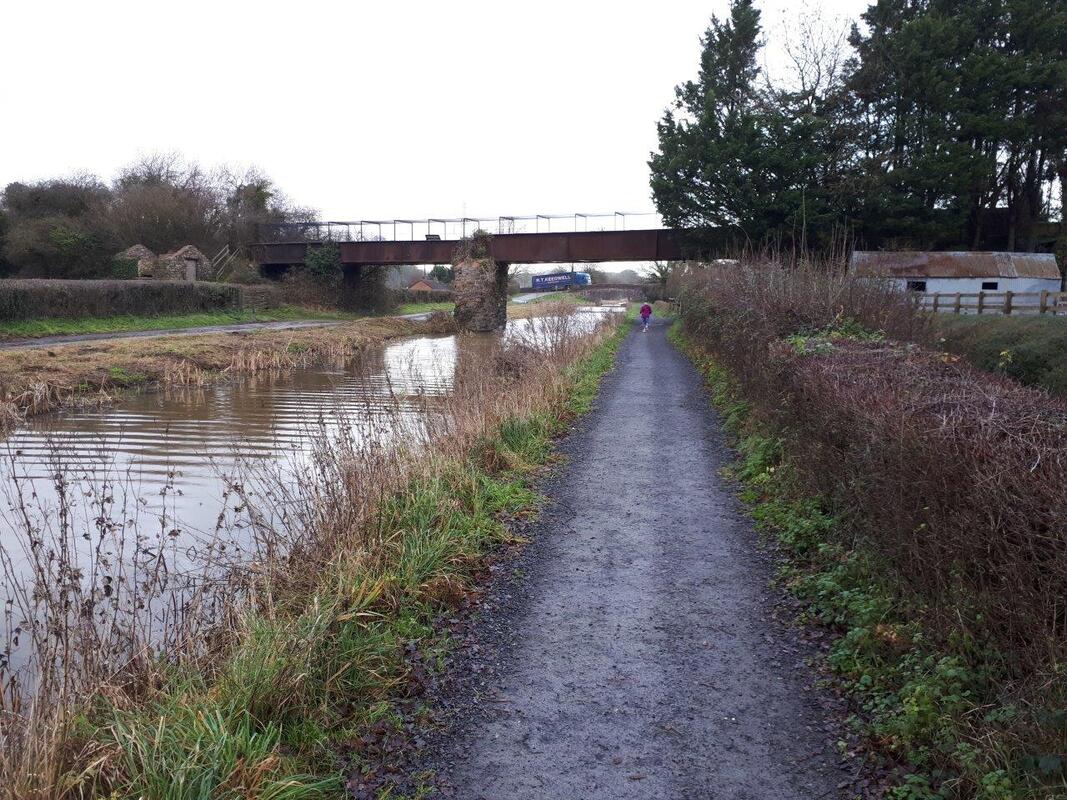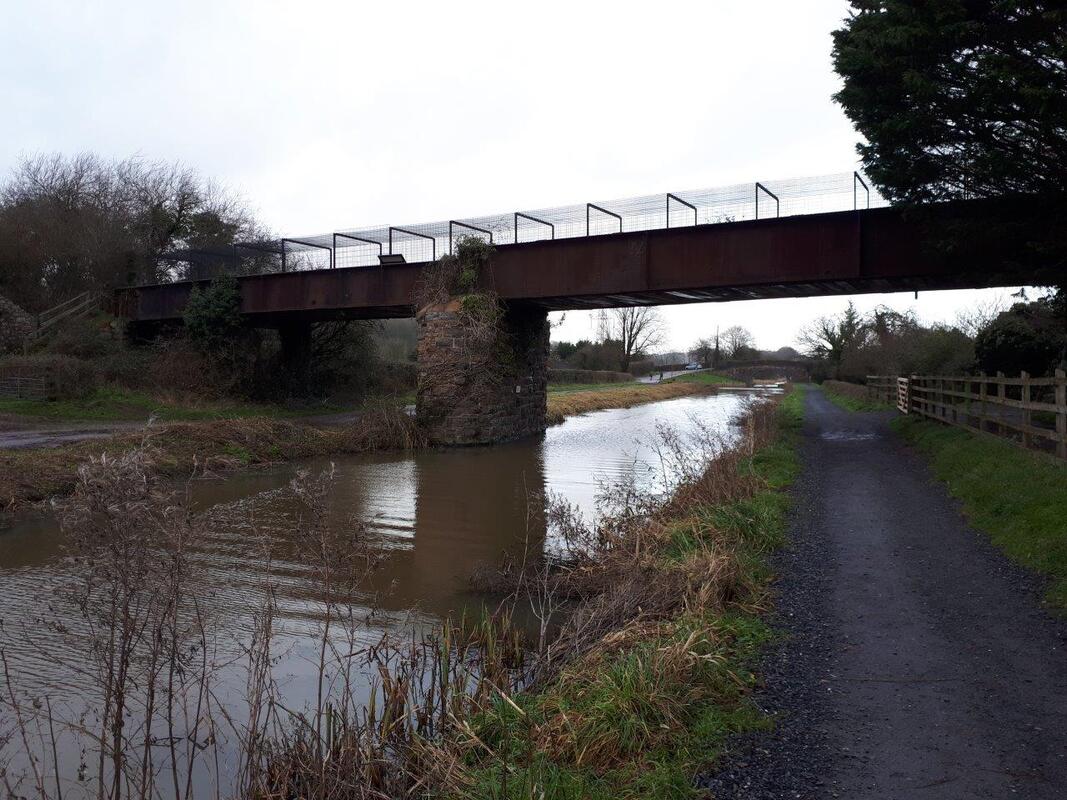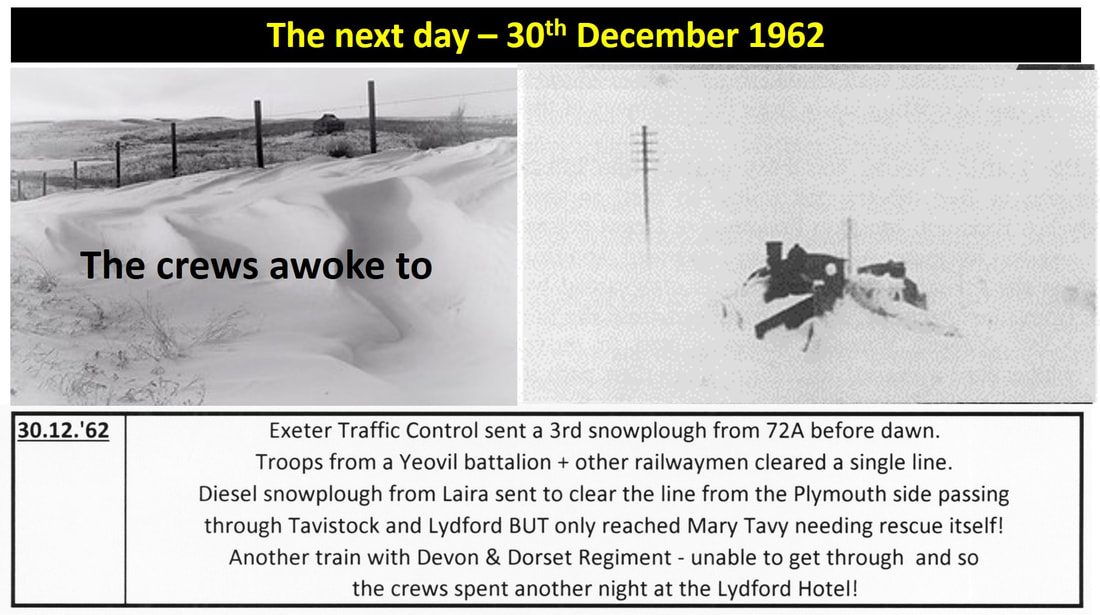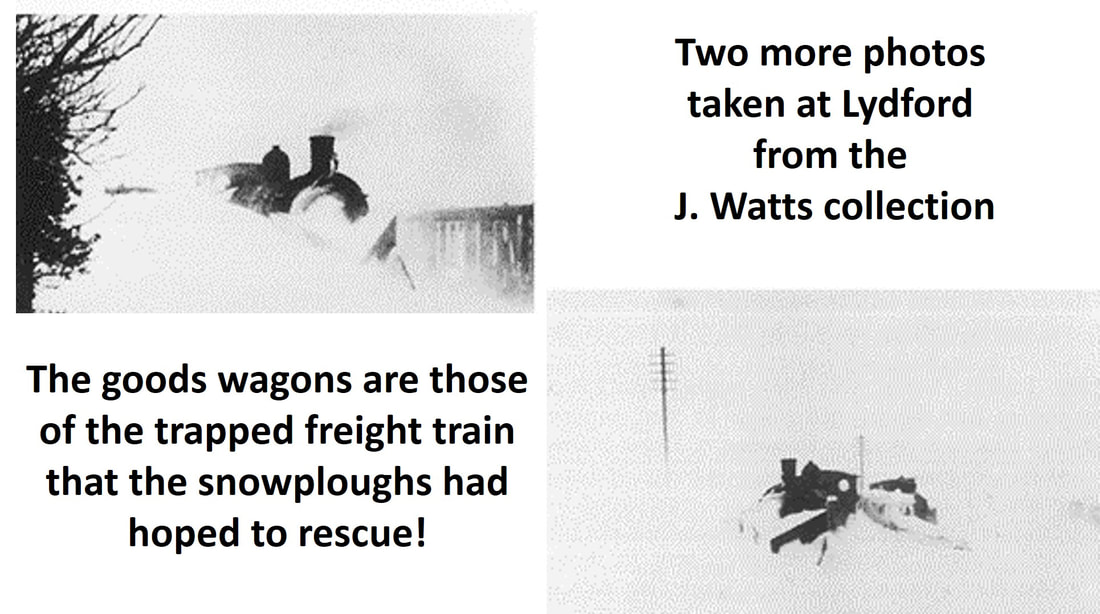Derek Buttivant
Kind regards, Derek Buttivant.
Roger Winnen
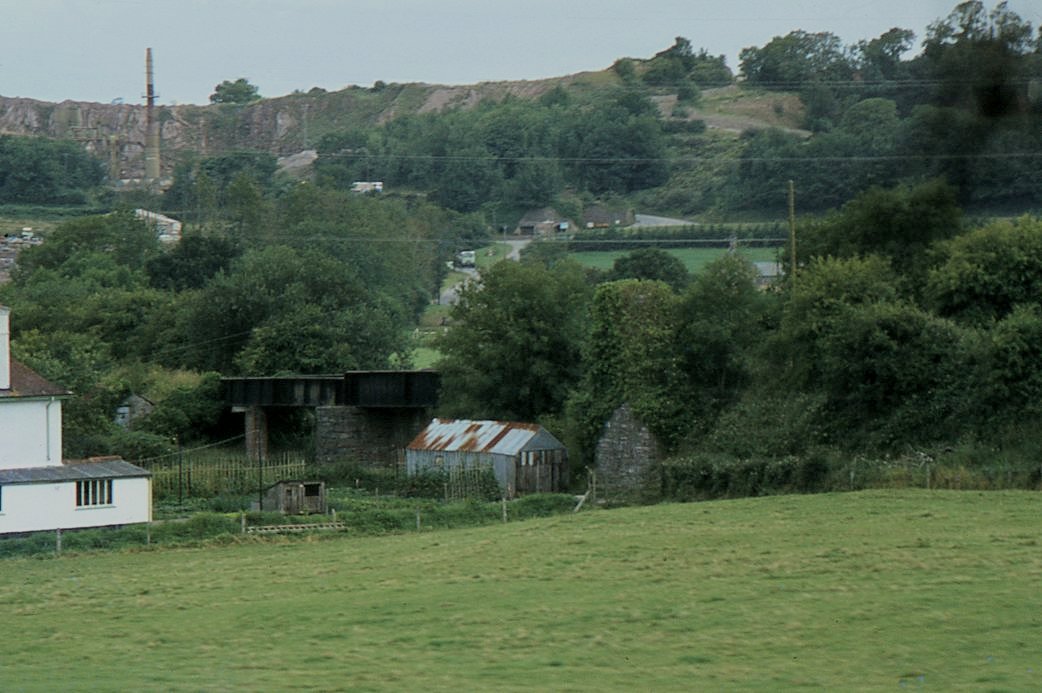
Sourton Down Part three
Ken Mumford
Michael L. Roach.
In Part 18 I related how the 6.20pm from Plymouth arrived at Tavistock South at 12.23.26am the next day some 320 minutes late. The intention was to travel all the way to Launceston returning on the 8.35pm SO to Plymouth. On the 6.20pm there were also enthusiasts from Lifton and Launceston returning home some of whom would no doubt have also travelled on the 8.35pm as far as Tavistock South where they would have crossed platforms to catch the 8.40pm SO Plymouth to Launceston; thereby catching the very last train in both directions. It did not work out like that.
We remained on the train in Tavistock South station until after ten minutes or so word came through that the train was being terminated because there was no communication between Tavistock and Lydford signal boxes. I am sure that no-one was at all surprised. Today's risk-averse management would have cancelled the train before it set out from Millbay in the prevailing circumstances that day. I believe that the passengers split into three groups. Some opted to stay on the train and sleep on the cushions while others stayed in the waiting room of Tavistock South Station. My group applied some lateral thinking that the 7.00pm from Waterloo could just be running a bit late and might take us back to Plymouth from Tavistock North that night. So we made our way across Bedford Square and up the hill to Tavistock's other station. That walk was magical. The snow had stopped and the wind had miraculously dropped almost to nothing. The scene reminded me of the words appearing in two different well-known Christmas Carols:
“snow had fallen, snow on snow, snow on snow” and “deep and crisp and even”
There had been so much snow; and it had been so long since there had been any traffic, either motorised or pedestrian, that there was nothing to mar the surface of the snow. It was clinging to one side of all lamp columns, and to every branch of every tree. It was a truly magical Christmas Card scene but we could not stop to admire it as we hurried up the hill to Tavistock North Station. We arrived to discover that the 7.00pm from Waterloo had not passed through and would not be calling as it too had also been terminated but I have not been able to find where the 7.00pm was stopped.
There was nothing for it but to pass the night in the waiting room at Tavistock North Station as best we could. Come morning the station staff told us that a rescue train was going to be sent out from Plymouth to convey us back to Plymouth via Bere Alston. However they could give no indication of timing. The rescue train would be no help to the contingent from the Launceston area so they set out to walk the 13 miles home, but some got friends and family to drive out to pick them up. I had spent the previous evening on the train with MB an enthusiast from Falmouth. He and I together decided that we were not going to wait for the rescue train and also decided to walk to Plymouth, which was 13 miles for me and 14 for MB. The story of that walk will be recounted in a forthcoming edition of the Cornwall Railway Society Magazine which is well written, laid out and printed. Some 28 percent of members do not live in Cornwall but keep in touch through the magazine and the website.
This series has covered the travelling and rambling of a Plymouth railway enthusiast over two weeks at the end of 1962 during the most inhospitable weather of his lifetime. The Launceston Branch may have closed but life went on in 1963 and so did the cold spell. I resumed travelling on Saturday 5 January 1963 with my friend Charles Fennamore on a day trip from Plymouth to Hemyock via Okehampton, Exeter and Tiverton Junction. Where Charles spent 29 December is not known but he was due to meet me on the train for the last trip out to Launceston on the 6.20pm off Plymouth. That last summer we had a made a couple of similar return trips on a Saturday evening but parking our cars at Marsh Mills Station for a change, and that is what Charles did on the 29 December. At the time Charles lived in the village of Brixton five miles south-east of Plymouth Station and Marsh Mills was a bit closer to his home. At Marsh Mills he would have witnessed the freight train abandoned in the up platform and the struggles to get the 5.40pm from Launceston past the obstruction and then to change the points for my train which arrived in the station at 10.14pm. After a couple of hours enduring the blizzard Charles gave up and drove home while it was still possible – a very wise decision in the circumstances
A contemporary BBC programme from February 1963 about The Big Freeze used these words, inter alia: chaos; the south-west bore the brunt of the storm with gusts up to 90 mph on 29 December; Princetown was cut off for days; 95,000 miles of road were ice bound; there was serious dislocation on railways; and so on. One of the best collection of photos of the Launceston and Princetown Branches appears in the Wild Swan book “The Great Western in South Devon”. Only 25 pages out of 250 pages are devoted to the two lines but there are many historic pre-war photos dating back to 1900. I first saw some of the photos of the Princetown Branch by RC Riley and RJ Doran used in the book in Trains Illustrated circa 1955 and they are just as fascinating today as they were then.
MLR / 4 January 2023
